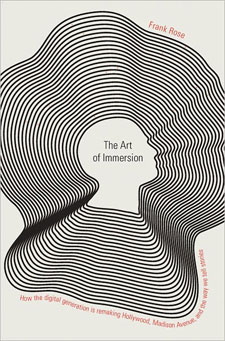Listen to This: How Was Your Week?
 For a while now, I’ve been meaning to talk about one of my favorite podcasts, Julie Klausner’s How Was Your Week? and how it’s helped me sort out my own approach to podcasting. I’ve been a big fan of Julie’s since we met a few years back, shortly before she sold her memoir, I Don’t Care About Your Band, and it’s been kind of cool to see her become increasingly visible in the last year or so—with the podcast, I think, being a significant turning point for her. It’s entirely possible, for example, that you’ve already heard about Julie from the interviews she’s given to outlets like NPR or The New York Times.
For a while now, I’ve been meaning to talk about one of my favorite podcasts, Julie Klausner’s How Was Your Week? and how it’s helped me sort out my own approach to podcasting. I’ve been a big fan of Julie’s since we met a few years back, shortly before she sold her memoir, I Don’t Care About Your Band, and it’s been kind of cool to see her become increasingly visible in the last year or so—with the podcast, I think, being a significant turning point for her. It’s entirely possible, for example, that you’ve already heard about Julie from the interviews she’s given to outlets like NPR or The New York Times.
How Was Your Week? has two primary components: Julie’s monologues are a showcase for what the Times called “her literate sensibility and affection for showmanship,” an opportunity for her to sit in front of the microphone and riff about whatever’s on her mind. Then, in her interviews, she gets to dig deep into other people’s creative lives. In an article for The A.V. Club, Julie picked some of her favorite episodes; in the context of her conversation with Sharon Needles, she mentions how “there are over-the-top types that are attractive to me, and to be able to connect with them the way that you’d ideally want to be able to connect to any person once they stop performing for you…is something I definitely aspire to.”
That ability to break through public personas is definitely one of Julie’s strengths, but I’m also particularly impressed by episodes where she interviews writers like Alex Stone (Fooling Houdini) or Jon Ronson (The Psychopath Test), because those segments spotlight her intense curiosity and her ability to drill down into a topic, making her presence felt but allowing the interviewee’s expertise to be the focus of our attention.
Because I’ve spent the last year developing my own podcast interview series, I tend to listen to How Was Your Week? with an ear towards what it can teach me about the craft, and I’ve learned a great deal from Julie about becoming more comfortable with yourself “on the air”—there really is a difference between having a one-on-one conversation with another person, and having that same conversation knowing that untold others are going to be listening in. But I’ve also been inspired by the ways the podcast has grown to a point where Julie can do live tapings in performance venues in Brooklyn and San Francisco, and has also put her on the radar of people who can offer her other creative projects. As she told NPR, “I don’t make money doing my podcast. I’ve learned that people want to hire creative people who are already doing something when they approach them.” That’s why one of my goals for 2013 is to raise Life Stories (and the Beatrice ebooks) to a level that will create a space where other creative projects can flourish.
19 January 2013 | listen to this |
Listen to This: The Stacked Podcast
 Last Friday, I went out to Brooklyn and hung out with Christina Oppold, the creator of the literary blog Stacked, to talk about The Art of Immersion, a book by Wired contributing editor that looks at the new forms of storytelling being built around entertainment properties like Avatar, The Dark Knight, and Lost. The result: a 50-minute conversation about (among other things) how these narrative innovations might affect the publishing industry, with occasional detours through the existential hysteria prompted by Dungeons & Dragons in the 1980s, the real meaning of Fahrenheit 451, the ascendancy of Amanda Hocking, and the transparent elitism of Andrew Keen.
Last Friday, I went out to Brooklyn and hung out with Christina Oppold, the creator of the literary blog Stacked, to talk about The Art of Immersion, a book by Wired contributing editor that looks at the new forms of storytelling being built around entertainment properties like Avatar, The Dark Knight, and Lost. The result: a 50-minute conversation about (among other things) how these narrative innovations might affect the publishing industry, with occasional detours through the existential hysteria prompted by Dungeons & Dragons in the 1980s, the real meaning of Fahrenheit 451, the ascendancy of Amanda Hocking, and the transparent elitism of Andrew Keen.
There’s a point in the podcast where we’re talking about fan wikis, and Christina mentions Terry Pratchett, and I’m all, “If there isn’t a Discworld wiki, there should be.” Well, there is a Pratchett wiki, which was intended to be just about Discworld, so there you go. (Same for the Wheel of Time wiki.)
This was a lot of fun, and I know Christina has big plans for future episodes, so keep an eye out!
1 April 2011 | listen to this |

 Our Endless and Proper Work is my new book with Belt Publishing about starting (and sticking to) a productive writing practice.
Our Endless and Proper Work is my new book with Belt Publishing about starting (and sticking to) a productive writing practice. 
